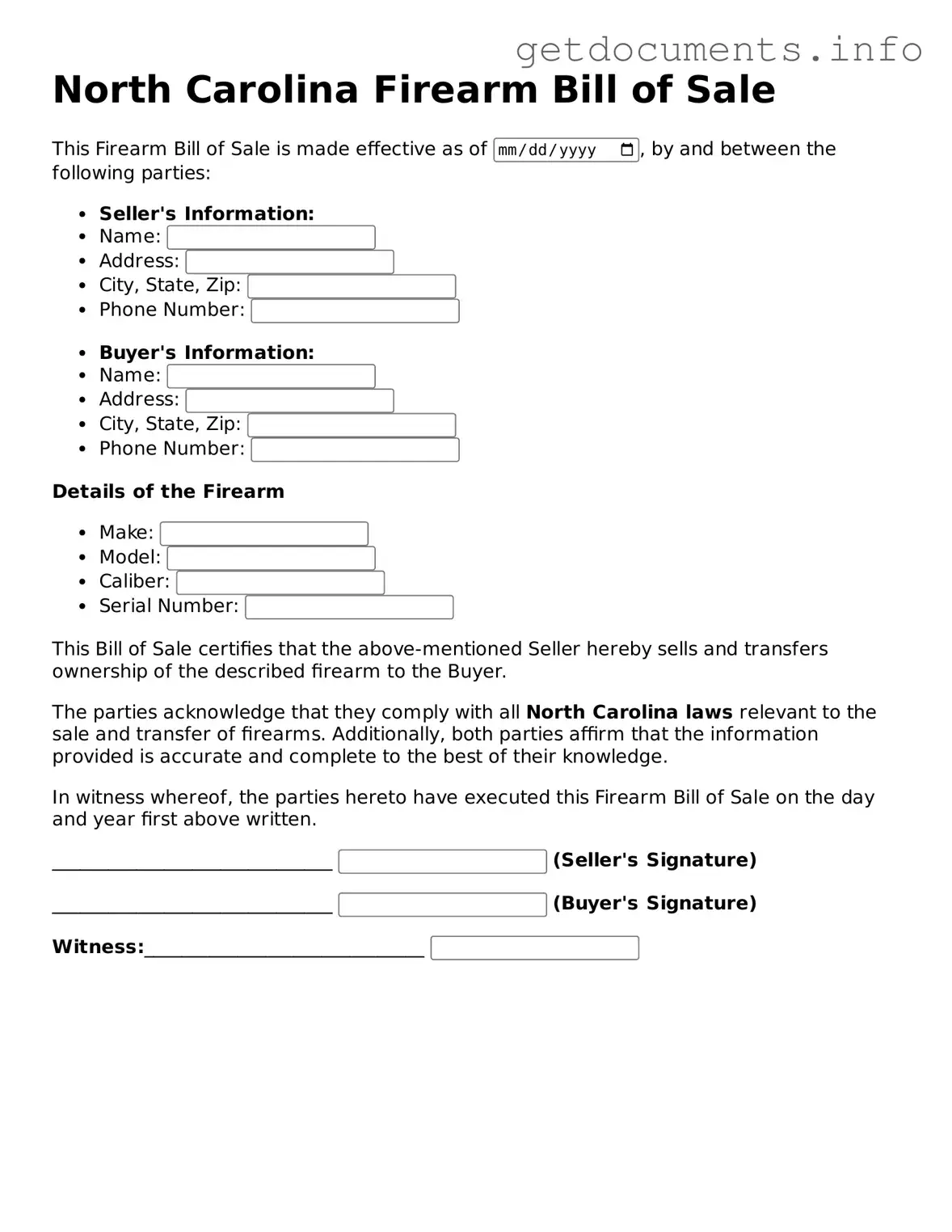Free Firearm Bill of Sale Template for North Carolina
The North Carolina Firearm Bill of Sale form is a legal document used to record the transfer of ownership of a firearm between a seller and a buyer. This form provides essential details about the transaction, including the identification of both parties and the firearm being sold. Ensuring that this form is completed accurately is crucial for compliance with state laws.
To fill out the North Carolina Firearm Bill of Sale form, click the button below.
Access Firearm Bill of Sale Editor

Free Firearm Bill of Sale Template for North Carolina
Access Firearm Bill of Sale Editor
Got places to be? Complete the form fast
Fill out Firearm Bill of Sale online and avoid printing or scanning.
Access Firearm Bill of Sale Editor
or
⇩ PDF File
